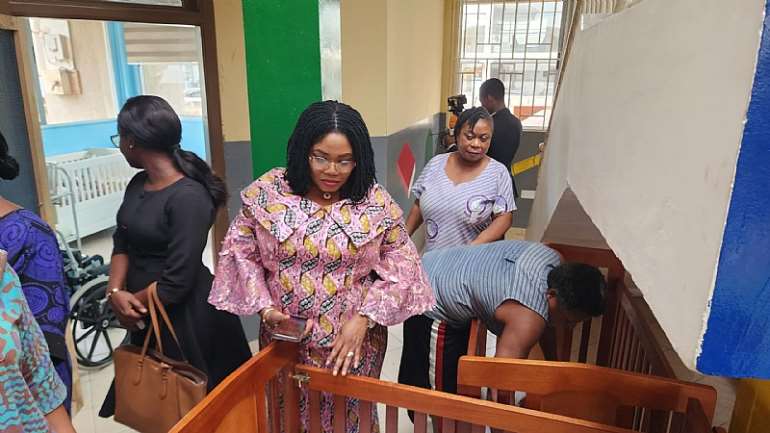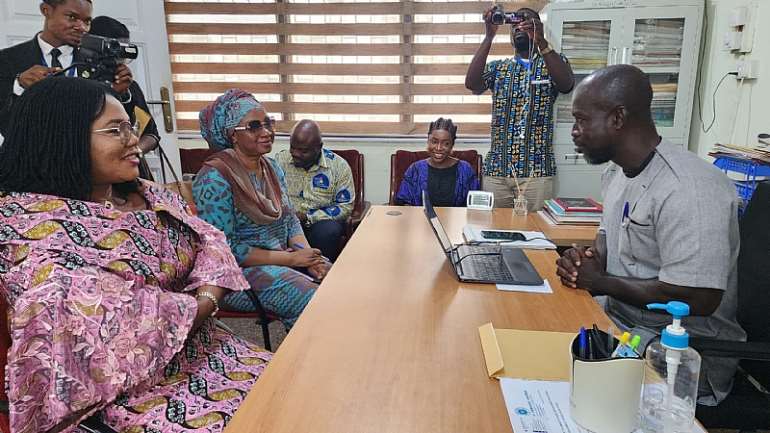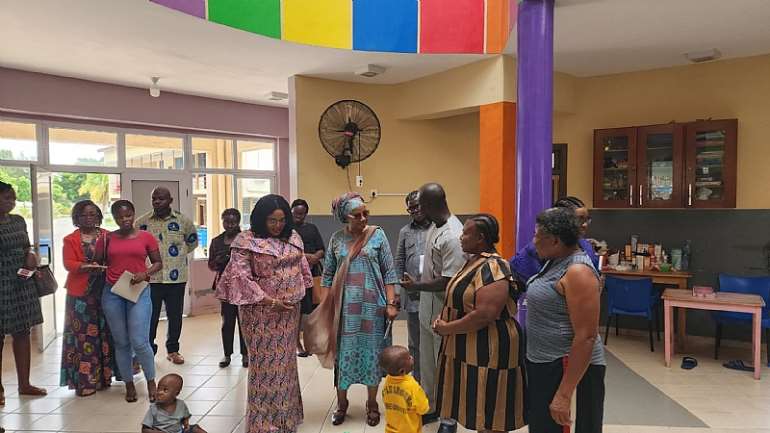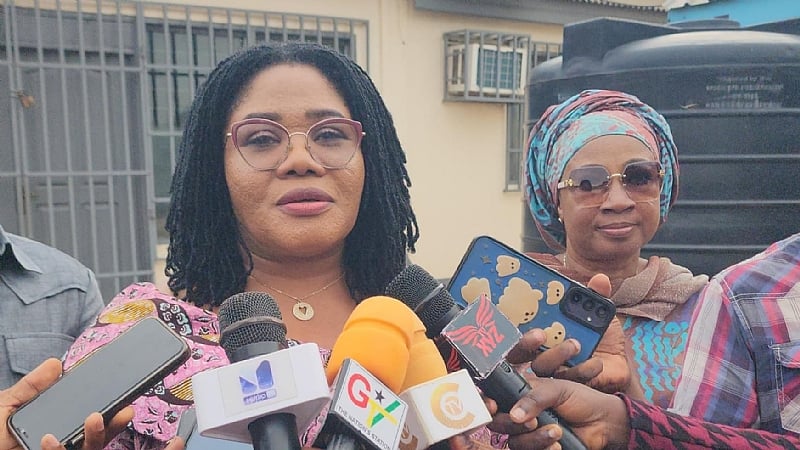The Minister for Gender, Children, and Social Protection, Dr Agnes Naa Momo Lartey, has reiterated the government’s unwavering commitment to safeguarding the welfare of vulnerable individuals and strengthening social protection systems across the country.
Her pledge follows a working visit to several care and vulnerability centres in Accra, where she expressed concern over the deteriorating conditions and resource limitations at these facilities.
During her inspection, Dr. Lartey observed firsthand the challenges confronting institutions supporting children and individuals living in vulnerable conditions. At one of her key stops at the Osu Children’s Home, Shetter for Abuse Children, and Girl Correctional Centre, she acknowledged the urgency of upgrading dilapidated infrastructure and improving the quality of care services.

“We are on the ground to witness these conditions for ourselves,” she said. “What we have seen is deeply concerning, but it also presents an opportunity. The government, in collaboration with corporate organisations and development partners, will work to change the situation. Vulnerable individuals, particularly children with special needs, deserve to live in dignity and receive the necessary support.”
The Minister’s remarks reflect her broader mission to ensure that all vulnerable persons in Ghana are treated with compassion, fairness, and respect.
She emphasized that the Ministry is committed to improving care delivery by providing adequate resources, training caregivers, and advocating for inclusive policies that support disadvantaged groups.

One of the most troubling issues Dr. Lartey addressed was the rising abandonment of children with special needs by their parents. She lamented the growing number of such children becoming permanent residents in care homes due to lack of familial support.
“It is heartbreaking to see parents give up on their children simply because they have special needs. These children deserve love, attention, and access to education and health services,” she said. “There is help available, and we are encouraging families to come forward and seek assistance instead of abandoning their children. Abandonment is not the answer.”
She assured parents that the government is ramping up efforts to improve early intervention programs, inclusive education, and disability-friendly infrastructure to support families and help children with special needs live fulfilling lives.
At the Osu Children’s Home, Dr. Dartey Reindof, the Center Manager, provided an in-depth overview of the crisis facing their operations. He revealed that the facility is under severe strain due to the increasing number of children with conditions such as epilepsy and autism, for whom the facility is not adequately equipped. He noted that resources were being stretched to a breaking point, often forcing the facility to displace able-bodied children to create room for special needs cases.
“We are facing a critical situation,” Dr. Reindof explained. “Our facilities are not tailored to the unique needs of these children, and our caregivers are not adequately trained. We’re doing our best, but without targeted government support, it’s not sustainable. We spend close to GH₵5,000 a week just on medications for these children.”

He added that requests for admission continue to pour in from across the country, with desperate parents some from as far as the Northern Region seeking help for their children. However, the home is forced to turn many away due to capacity limitations.
Dr. Reindof further appealed for a national policy to establish specialised institutions dedicated to children with special needs. According to him, such children require tailored medical attention, therapy, and caregiver-to-child ratios that far exceed current capabilities.
“Our caregivers are overstretched,” he said. “We currently have only 36 caregivers catering to over 20 children in each unit. For effective care, we need to triple that number. And we need specialised training for those caring for children with autism, epilepsy, cerebral palsy, and other complex conditions.”
He emphasised that the problem affects more than just the children in care it impacts parents who feel overwhelmed and helpless in the face of limited support. “When parents cannot cope, they bring the children here, and that shifts the burden to us. But the truth is, the whole nation has a role to play in caring for these children.”
In response, Dr Lartey reassured that her ministry is already in discussions with key stakeholders to develop targeted strategies for supporting such institutions. She stressed that the well-being of children with special needs must be a national priority, and no child should be denied a future due to their condition.
“We cannot let these children fall through the cracks,” she said. “They are Ghanaian children, and their future is as important as any other. The government will take steps to ensure inclusive policies, sufficient budget allocation, and partnership with NGOs and international donors to improve the quality of life in such centres.”
Dr. Lartey concluded by urging the private sector, civil society organisations, and benevolent individuals to also lend their support in uplifting care homes and supporting vulnerable families.
“Our goal is simple to create a supportive environment where vulnerable individuals, especially children with special needs, can live with dignity, receive quality care, and thrive,” she said. “We are not there yet, but with collective effort, I believe we will get there.”





